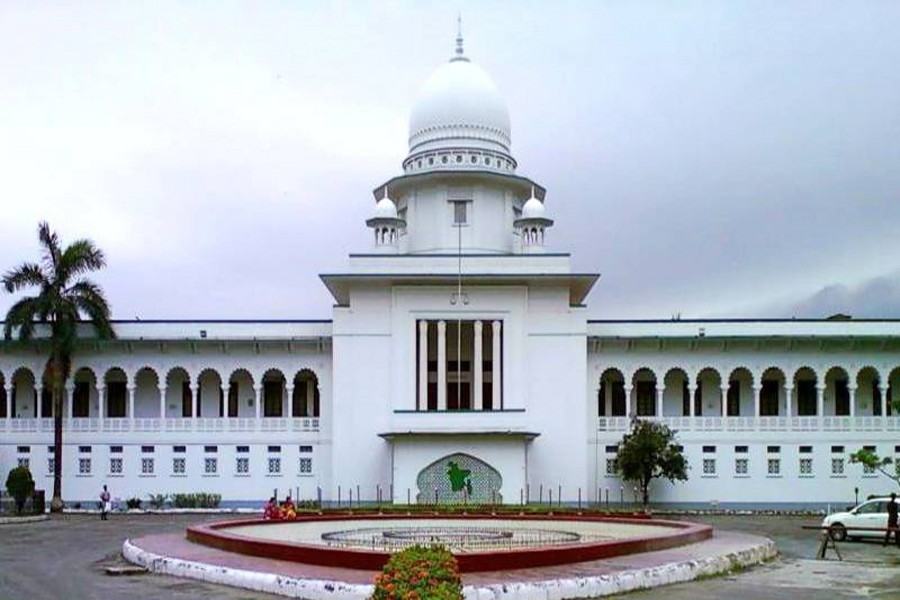The government on Sunday filed a review petition seeking cancellation of the full verdict of the Supreme Court that upheld a High Court judgment scraping the 16th constitutional amendment.
The prosecution submitted the petition to the department concerned of the Appellate Division of the Supreme Court in the morning, said deputy attorney general Ekramul Haque Tutul.
In the petition, the state also sought cancellation of the irrelevant, unnecessary and objectionable comments made in the 16th constitutional amendment judgment, he added.
Some 94 grounds were also mentioned in the review petition, the Deputy AG also said.
Attorney General Mahbubey Alam briefed reporters around 11 am in this regard.
On July 3 last, the Supreme Court upheld the High Court verdict that declared illegal the 16th Amendment to the Constitution establishing Parliament's authority to remove Supreme Court judges.
Later, on August 1, the apex court released the full text of its verdict upholding the High Court verdict that declared illegal the 16th Amendment to the Constitution establishing Parliament's authority to remove Supreme Court judges.
The copy of the 799-page full verdict was released after all members of the Appellate Division bench, headed by then Chief Justice Surendra Kumar Sinha, signed it, said the SC additional registrar Sabbir Foyez.
In his observation, the then Chief Justice said article 116 of the Constitution had been in conflict with article 109, says a UNB report.
The Article 116, which was amended during the fourth amendment to the Constitution, empowered the President to control (including posting, promotion, leave and discipline) the persons employed in the judicial service in consultation with the Supreme Court, Sinha said.
On the other hand, according to article 109, the High Court Division shall have 'superintendence' and control over all courts and tribunals subordinate to it.
"If the High Court Division has superintendence and control over the lower judiciary, how it shall control the officers performing judicial works if the executive controls the posting, promotion and discipline. The disciplinary action is not clear to me," the Chief Justice added.
He also said, "Keeping the control and disciplinary mechanism of the officers of the lower judiciary with the executive, the judiciary can't be independent and this provision is not only inconsistent with article 109, it is also inconsistent with article 116A, which has also been substituted by the constitution Fourth Amendment."
Under this provision, it is said that all the persons employed in the judicial service and all the magistrates shall be independent in exercise of their judicial functions, Sinha said adding that there cannot be any independence in the judiciary if the disciplinary mechanism, including the power of appointment, posting and promotion of the officers of the lower and higher judiciary, are kept in the hands of the executive.
"In as much as, there's no mechanism under the scheme of the Constitution as to how the executive shall control the power of posting, promotion and discipline of persons employed in the judicial service and the higher judiciary," he added.


